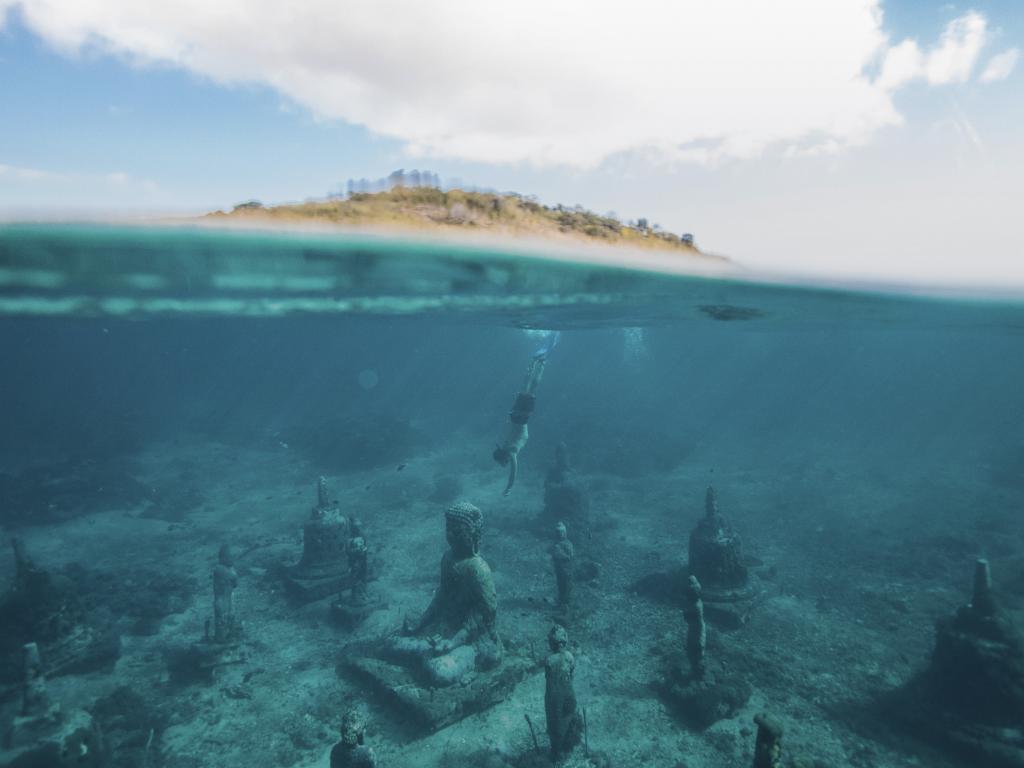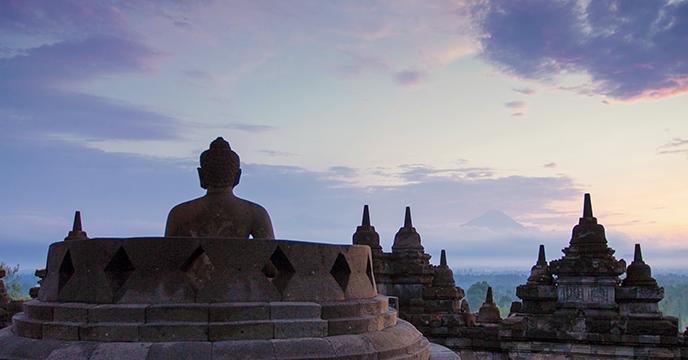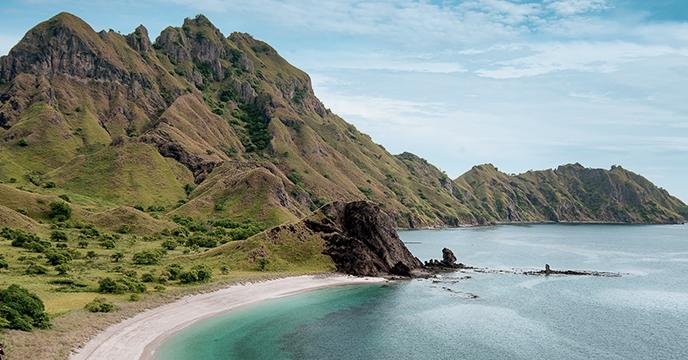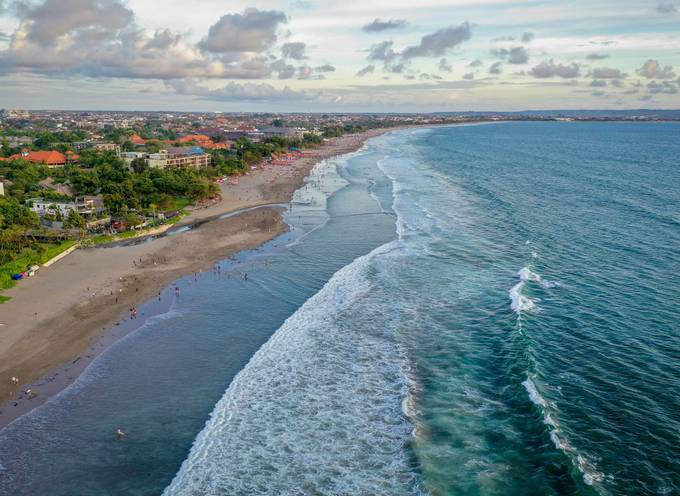
Indonesia Travel Guide
When you speak of beach holidays in Southeast Asia, it’s difficult not to do so without talking about Indonesia in the same breath. The wildly appealing archipelago, trimmed with stretches of pristine beaches and forests, is the setting for many adventures and exploration, tricked out with wildlife, Buddhist temples, volcanoes and a mix of rich cultural traditions.
The Highlights


The Basics
The Location
Indonesia is home to a few thousand volcanic islands and sits northwest of Australia and south of Thailand and the Philippines. It’s a 22h 30m flight from New York with a layover, and 16h 30m from London with a stopover.
Capital City
Jakarta is not only Indonesia’s largest city, but it also serves as its sprawling capital. It sits on the northwestern coast of the island of Java and remains to be one of Asia’s most diverse cities.
Main Airport
The Soekarno-Hatta International Airport is the busiest and largest in Indonesia as well as the busiest in the southern hemisphere. It’s located less than 30 kilometres from Jakarta on the island Java and serves Greater Jakarta.
- Code
- CGK
- Closest City
- Tangerang
Language Spoken
The official language of Indonesia is Indonesian, although over 700 languages and dialects are spoken on the islands. There are many English speakers, it is not as prevalent as it is in Thailand.
Currency
Indonesia uses the Indonesian rupiah. The currency code is IDR. ATMs and money changers are widespread in cities. Carry enough money with you at all times as most businesses prefer cash.
Visas
Citizens of more than 150 countries are visa exempt and can travel to and around Indonesia visa-free for 30 days. Included on the list are the United States, Canada, Australia, the United Kingdom and Germany.
Electricity
The standard voltage in Indonesia is 230V while the standard frequency is 50Hz. The country uses the Type C plug (also known as the Europlug) with two round pins and the Type F plug with two round pins and two grounding clips.
Vaccinations
Boosters of Diphtheria, Hepatitis A, and Tetanus are advised. Other vaccines to consider include Hepatitis B, Rabies, and Typhoid. Proof of Yellow Fever vaccination certificate is required for when arriving from countries with risk of Yellow Fever.
Emergency Calls
In Indonesia, the emergency phone numbers are as follows: 110 for the police, 112 for general emergencies, 113 for fire, and 118 for an ambulance.
When to Visit

Indonesia Tours

Visit Responsibly
Travelling responsibly means respecting the communities, culture and environment of the places you visit. Keep these tips in mind when travelling to Indonesia:
Go green. Be environmentally conscious on the road by taking short showers; turning off the lights in your hotel room when you leave; and resisting the urge to collect any plants, seashells, or other natural flora.
Respect cultural differences. Before travelling, read about the local culture and customs – even just knowing the dress code and a few basic phrases in the local language will go a long way.
Support local businesses. Enjoy a more authentic experience and directly support the local economy by travelling with a local guide, eating in local restaurants, buying from local artisans, and staying in locally-owned and operated accommodations.
Wherever possible, avoid single-use plastics. Pack reusable items such as your own shopping bags, utensils, a water bottle, and a straw. These items are typically lightweight and compact, and will greatly reduce your consumption of plastics.
Be conscious of overtourism. Opt to visit the lesser-known regions of Indonesia or travel outside the peak season – you'll likely even get a better deal and won't have all the crowds!
Sustainable Tourism in Indonesia
Greeneration Foundation (GF)
Founded in 2014, GF is an NGO that promotes Sustainable Consumption and Production (SCP) in Indonesia through the use of creative media. Their activities include collaborations with the government, communities, and environmentally-focused organizations.
Sustainable Tourism in Indonesia
Affirming Indonesia’s commitment to promoting sustainable tourism products and services, the Sustainable Tourism Destination Standard achieved ‘GSTC-Recognized’ status by the Global Sustainable Tourism Council (GSTC). The Sustainable Tourism Destination Standard strives to guide the sustainable development of popular tourism destinations in Indonesia. As the demand for travel continues to grow in these areas, the Ministry of Tourism is seeking sustainable development opportunities for each of them.
A Sustainable Future
The Low Carbon Initiative (LCDI) of 2017 was launched by the Ministry of National Development Planning (BAPPENAS) in an effort to place low-carbon development at the forefront of Indonesia’s next five-year development agenda. In addition, Indonesia’s first-ever sustainable development plan, RPJMN 2020-2024, was released in January 2020.
FAQs about Indonesia
Do you tip in Indonesia?
Tipping in Indonesia is not at all mandatory. However, it’s definitely appreciated in the service industry. The rule of thumb is to leave a 5% to 10% tip at restaurants, round up your taxi meter fare, and maybe leave your tour guide a small gratuity.
What is the internet access like?
WiFi might be easily accessible all over Indonesia, except in the remote areas, but it’s not often as fast as you’re probably used to. Restaurants and cafes offer free WiFi, while hotels either have them for free or for a fee.
Is the tap water safe to drink?
Don’t do it. Locals either boil it or drink bottled water, and you must do the same.
Can I use my credit cards?
Visa, Mastercard and American Express are accepted, but only at higher-end establishments. Stick to cash, but only carry enough on your person. ATMs machines are easily available in a lot of tourist areas, anyway.
What are the public holidays?
Alongside Christmas Day and New Year’s Day, Indonesia celebrates Chinese New Year (1st day of the 1st month in the Chinese calendar), Nyepi (every Isakawarsa in the Balinese calendar), Vesak, Independence Day (August 17), and the Islamic New Year.
What are the toilets like?
Know that both sit or Western-style and squat toilets are available in Indonesia. The thing you should keep in mind the most is that toilet paper is not commonly used. Do yourself a favour and carry a wad of toilet paper with you during your trip.













